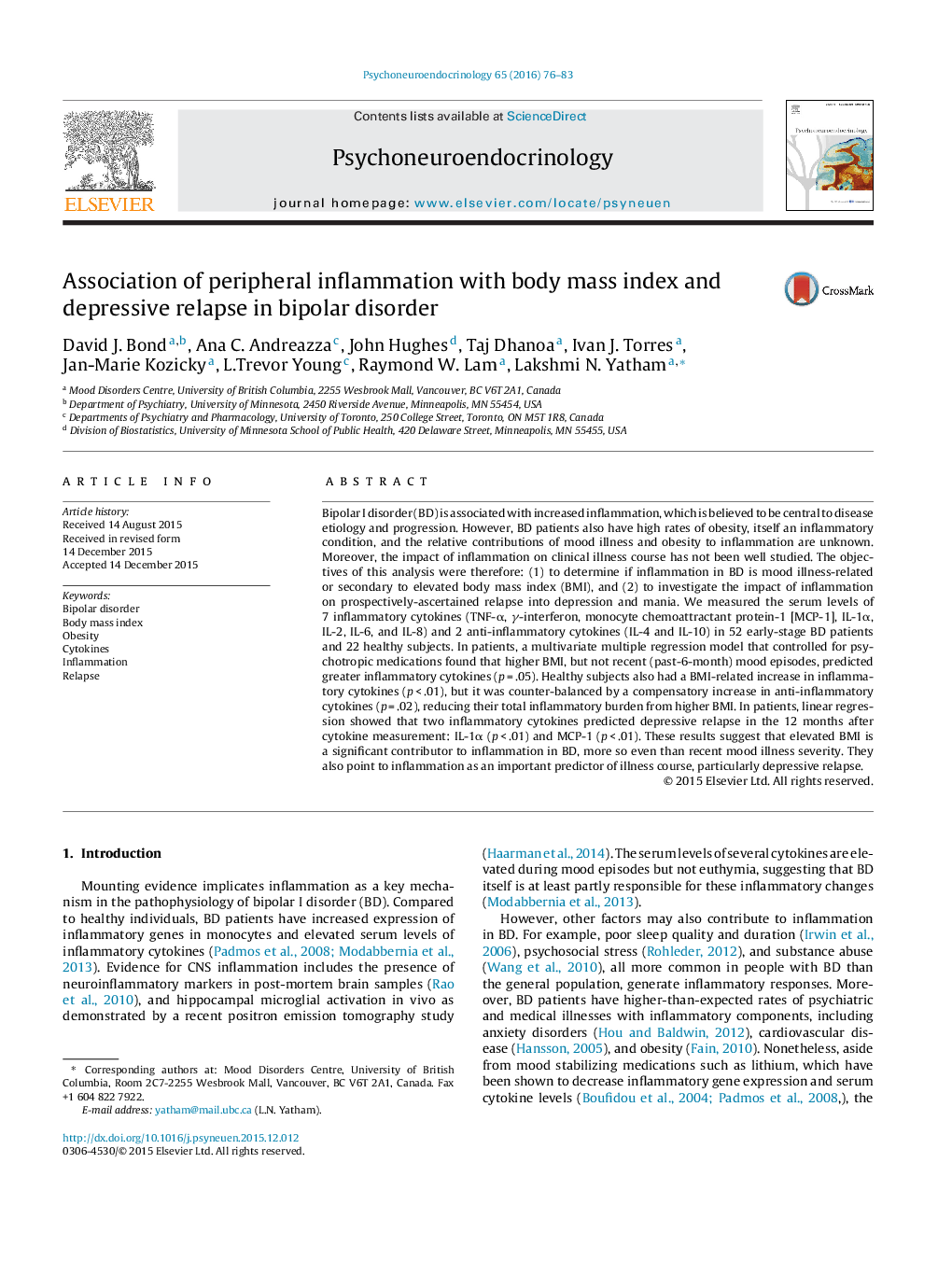| Article ID | Journal | Published Year | Pages | File Type |
|---|---|---|---|---|
| 6818338 | Psychoneuroendocrinology | 2016 | 8 Pages |
Abstract
Bipolar I disorder (BD) is associated with increased inflammation, which is believed to be central to disease etiology and progression. However, BD patients also have high rates of obesity, itself an inflammatory condition, and the relative contributions of mood illness and obesity to inflammation are unknown. Moreover, the impact of inflammation on clinical illness course has not been well studied. The objectives of this analysis were therefore: (1) to determine if inflammation in BD is mood illness-related or secondary to elevated body mass index (BMI), and (2) to investigate the impact of inflammation on prospectively-ascertained relapse into depression and mania. We measured the serum levels of 7 inflammatory cytokines (TNF-α, γ-interferon, monocyte chemoattractant protein-1 [MCP-1], IL-1α, IL-2, IL-6, and IL-8) and 2 anti-inflammatory cytokines (IL-4 and IL-10) in 52 early-stage BD patients and 22 healthy subjects. In patients, a multivariate multiple regression model that controlled for psychotropic medications found that higher BMI, but not recent (past-6-month) mood episodes, predicted greater inflammatory cytokines (p = .05). Healthy subjects also had a BMI-related increase in inflammatory cytokines (p < .01), but it was counter-balanced by a compensatory increase in anti-inflammatory cytokines (p = .02), reducing their total inflammatory burden from higher BMI. In patients, linear regression showed that two inflammatory cytokines predicted depressive relapse in the 12 months after cytokine measurement: IL-1α (p < .01) and MCP-1 (p < .01). These results suggest that elevated BMI is a significant contributor to inflammation in BD, more so even than recent mood illness severity. They also point to inflammation as an important predictor of illness course, particularly depressive relapse.
Related Topics
Life Sciences
Biochemistry, Genetics and Molecular Biology
Endocrinology
Authors
David J. Bond, Ana C. Andreazza, John Hughes, Taj Dhanoa, Ivan J. Torres, Jan-Marie Kozicky, L.Trevor Young, Raymond W. Lam, Lakshmi N. Yatham,
